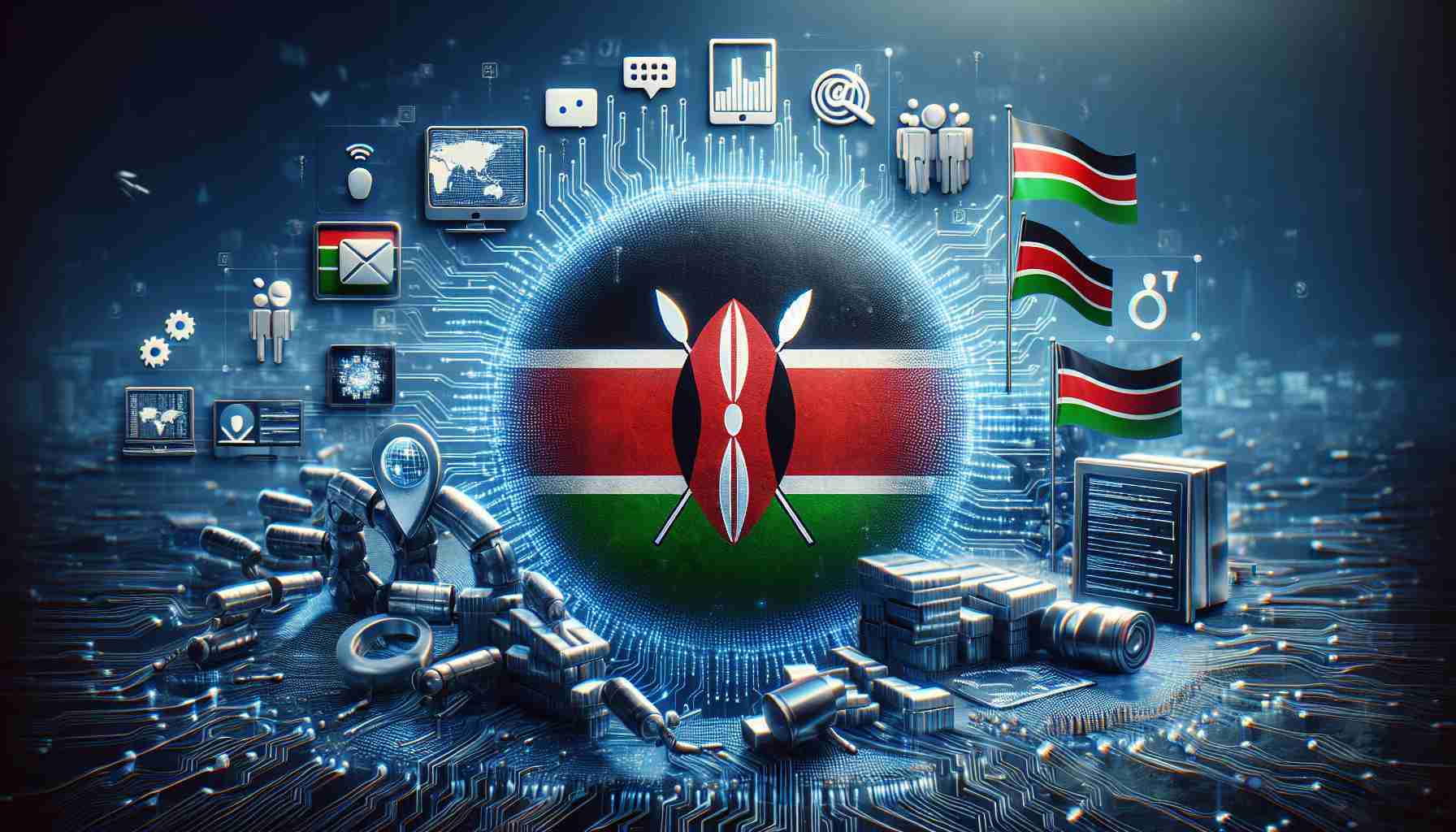- Kenya is experiencing a clash between government authority and online dissent over AI-generated content.
- High-profile abductions, including those of cartoonist Gideon Kibet and activist Billy Mwangi, highlight the risks faced by critics of the regime.
- The Kenya National Commission on Human Rights has recorded 82 abductions since June 2024.
- Digital tools and platforms are fueling creativity and enabling citizens to challenge governmental narratives.
- Government responses include threats of legal action against creators of politically charged AI imagery.
- Kenyans have a history of using social media effectively, influencing significant political and cultural issues.
- Kenya’s future hinges on the balance between innovation and government censorship of digital expression.
In Kenya, a silent war is brewing, not in the streets but in the vast expanses of the internet. The government’s crackdown on AI-generated content and social media activism has ignited a wave of online dissent, creating a precarious situation ripe for rebellion.
This tension surfaced dramatically when influential figures like cartoonist Gideon Kibet and 24-year-old Billy Mwangi were reportedly abducted for sharing AI-generated depictions of the President in a coffin. The Kenya National Commission on Human Rights has documented 82 abductions since June 2024, with many critics still unaccounted for, raising alarms about the authorities’ tactics to silence dissent.
As digital protest surges, fueled by vibrant AI-driven imagery and political satire, the government struggles to control this powerful new voice. Tech visionary Mark Kaigwa highlights a shifting landscape where citizens push boundaries, expressing their rights more vigorously than ever.
The emergence of tools like Grok on platforms like X (formerly Twitter) has empowered creators to produce unsettling political imagery, further escalating tensions. Government officials are now threatening legal action against those employing these AI technologies against national leaders.
Yet, this digital resistance is entrenched in Kenya’s culture. From pioneering mobile money to leading a vibrant startup scene, Kenyans on social media have demonstrated their considerable influence, even swaying the royal agenda of the Dutch monarchy.
As the government tightens its grip, a key takeaway looms large: Kenya stands at a crossroads of innovation and censorship, with the future of digital expression hanging in the balance. Will the voices of dissent continue to resonate, or will the government succeed in silencing them?
Digital Dissent: The Battle for Freedom in Kenya
In Kenya, a silent war is brewing not in the streets but within the online realm, sparked by the government’s crackdown on AI-generated content and social media activism. This tension has unleashed a powerful wave of digital dissent, leading to a precarious situation that could witness significant rebellion against authority.
Key Developments in Digital Dissent
Recently, influential figures such as cartoonist Gideon Kibet and young activist Billy Mwangi were reportedly abducted after sharing provocative AI-generated depictions of the President. The Kenya National Commission on Human Rights has highlighted a troubling rise in abductions, documenting 82 cases since June 2024, with many critics still missing. This escalating threat underscores the government’s aggressive tactics to stifle dissent and control the narrative.
As digital protests surge, fueled by vibrant AI-driven imagery and sharp political satire, the government struggles to retain control over this potent voice. Technology influencer Mark Kaigwa notes this shifting landscape, where ordinary citizens leverage digital tools to express their rights vigorously and creatively.
The rise of tools like Grok on platforms such as X (formerly Twitter) has enabled creators to craft powerful and unsettling political visuals, exacerbating the already tense atmosphere. Government officials are now issuing threats of legal action against individuals using these technologies to challenge national leaders.
Broader Cultural Context
This trend of digital resistance is deeply embedded in Kenya’s cultural landscape. Known for its innovative approaches—from pioneering mobile money systems to fostering a vibrant startup ecosystem—Kenyans on social media have demonstrated a significant ability to influence public opinion and political discourse, even extending their influence to impact matters as far-flung as the Dutch monarchy.
Key Insights
Kenya currently stands at a crucial crossroads of innovation and censorship. The future of digital expression hangs in a precarious balance. The burning question remains: Will the voices of dissent continue to resonate, or will the government succeed in quelling this online revolution?
Important Questions
1. What are the implications of the government’s crackdown on AI-generated content for freedom of expression in Kenya?
– The crackdown poses a significant threat to free speech, potentially stifling creativity and dissent among citizens who rely on digital platforms for expression. It raises concerns about the future of civic engagement and the role of technology in amplifying voices.
2. How are citizens utilizing AI tools to challenge authority in Kenya?
– Citizens are creatively employing AI tools like Grok to create impactful political imagery that critiques the government. This use of technology has become a pivotal part of digital activism, allowing for wider reach and engagement within the populace.
3. What are the potential consequences of the government’s response to online dissent?
– The government’s aggressive response could lead to increased polarization and civil unrest, as many may view the crackdown as a violation of their rights. It could also push dissent underground, making it harder to track but potentially sparking a more organized resistance movement.
For further insights into the situation in Kenya and ongoing digital trends, visit The Citizen.
